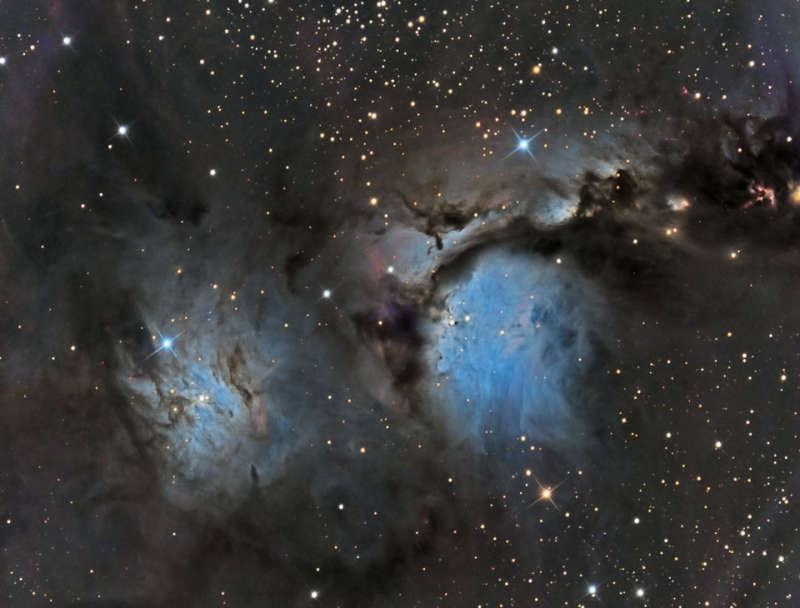Credit & Copyright: Ian Sharp
Explanation:
An eerie blue glow and ominous columns of
dark dust highlight M78 and other bright
reflection nebula
in the constellation of Orion.
The dark filamentary
dust not only absorbs light, but also reflects the
light of several bright blue stars that
formed recently in the nebula.
Of the two reflection nebulas
pictured above, the more famous nebula is
M78, in the image center, while
NGC 2071 can be seen to its lower left.
The same type of scattering that colors the
daytime sky further enhances the blue color.
M78 is about five
light-years across and visible through a small telescope.
M78 appears above only as it was
1600 years ago,
however, because that is how long it takes light to go from
there
to here.
M78
belongs to the larger
Orion
Molecular
Cloud
Complex
that contains the
Great Nebula in Orion and the
Horsehead Nebula.
Follow APOD on:
Facebook,
Google Plus,
or
Twitter
1999 2000 2001 2002 2003 2004 2005 2006 2007 2008 2009 2010 2011 2012 2013 2014 2015 2016 2017 2018 2019 2020 2021 2022 2023 2024 2025 |
Yanvar' Fevral' Mart Aprel' Mai Iyun' Iyul' Avgust Sentyabr' Oktyabr' Noyabr' Dekabr' |
NASA Web Site Statements, Warnings, and Disclaimers
NASA Official: Jay Norris. Specific rights apply.
A service of: LHEA at NASA / GSFC
& Michigan Tech. U.
|
Publikacii s klyuchevymi slovami:
reflection nebula - dust - otrazhatel'nye tumannosti - Molekulyarnye oblaka
Publikacii so slovami: reflection nebula - dust - otrazhatel'nye tumannosti - Molekulyarnye oblaka | |
Sm. takzhe:
Vse publikacii na tu zhe temu >> | |
